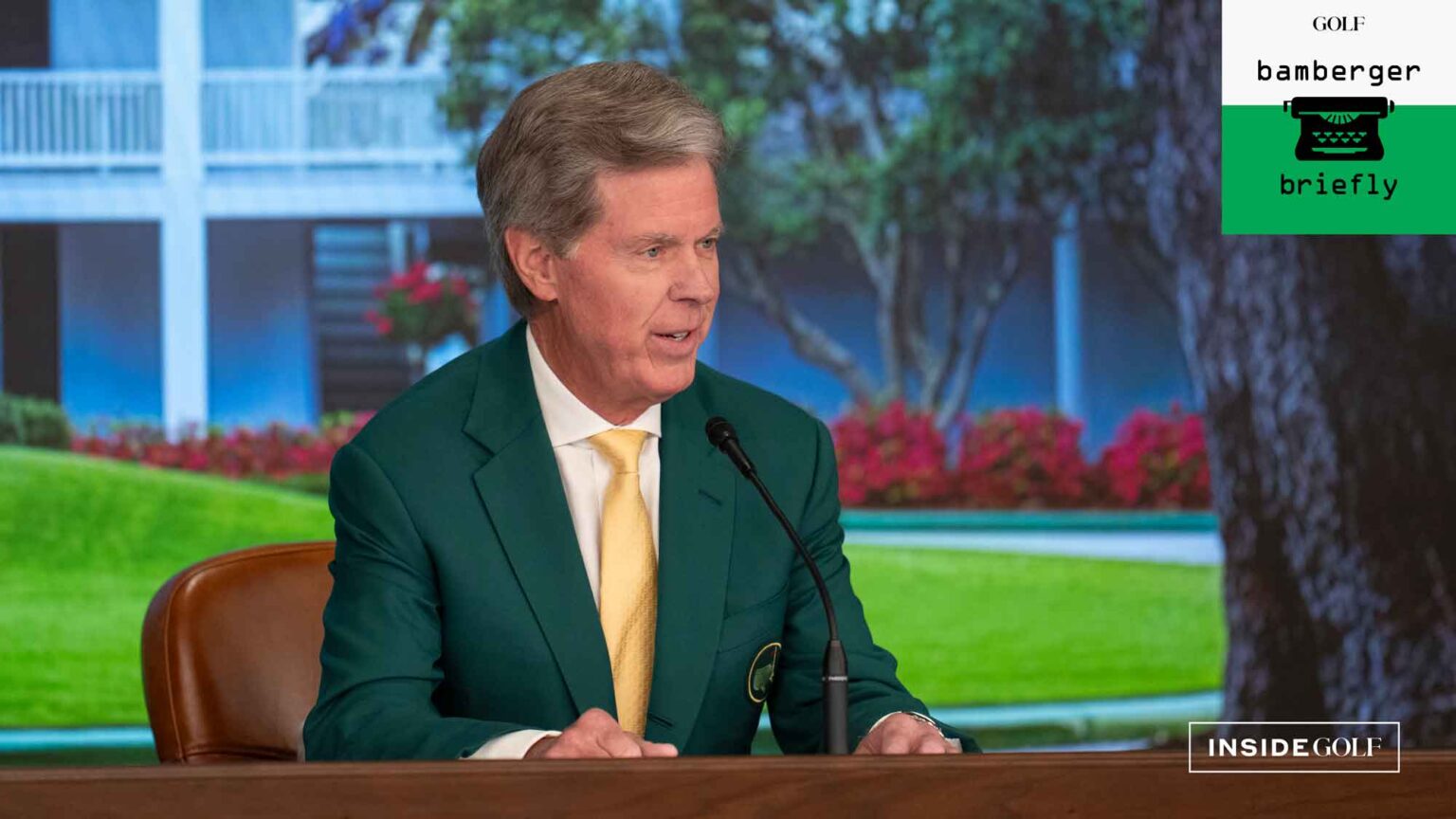Fred Ridley, the Augusta National chairman, recently spoke about the pace-of-play issues in golf during his annual State of the Masters press conference. In his prepared remarks, Ridley emphasized the importance of playing without undue delay as an essential skill of the game. He also highlighted the need for professionals to set a good example for amateur players when it comes to pace of play. Ridley’s statement was a clear indication that slow play is a serious issue that needs to be addressed at all levels of the sport.
During the press conference, Ridley addressed a specific incident involving a young golfer taking an excessive amount of time to line up a putt. He acknowledged that such behavior sets a negative example for aspiring golfers who look up to professional players. Ridley also mentioned that the PGA Tour is experimenting with timing procedures to address pace-of-play issues, indicating that efforts are being made to improve the situation. However, he emphasized that more needs to be done to encourage faster play on the course.
Ridley’s comments about pace of play reflect a growing concern within the golf community about the sluggish pace at which the game is played. While measures such as time limitations and penalties can help expedite play, changing the culture of slow play in golf will require a concerted effort from players, fans, and governing bodies. Addressing pace-of-play issues is essential to preserving the integrity and enjoyment of the game for players and spectators alike.
One proposed solution to slow play is the adoption of ready-golf as the norm on professional tours. By incentivizing faster play through fines, timing procedures, or social pressure, players can be encouraged to pick up the pace on the course. Additionally, initiatives like shot clocks and penalty strokes can help enforce faster play and hold players accountable for unnecessary delays. Ultimately, improving pace of play requires a multi-faceted approach that addresses both individual behavior and systemic issues within the sport.
Ridley’s commitment to addressing pace-of-play issues at Augusta National is a step in the right direction, but lasting change will require collaboration and cooperation from all stakeholders in the golf community. By setting a positive example and promoting respectful and considerate play, players can help create a culture of faster play that benefits everyone involved. As the sport continues to evolve, finding creative solutions to pace-of-play challenges will be crucial to ensuring the long-term sustainability and success of golf as a competitive and enjoyable pastime.
